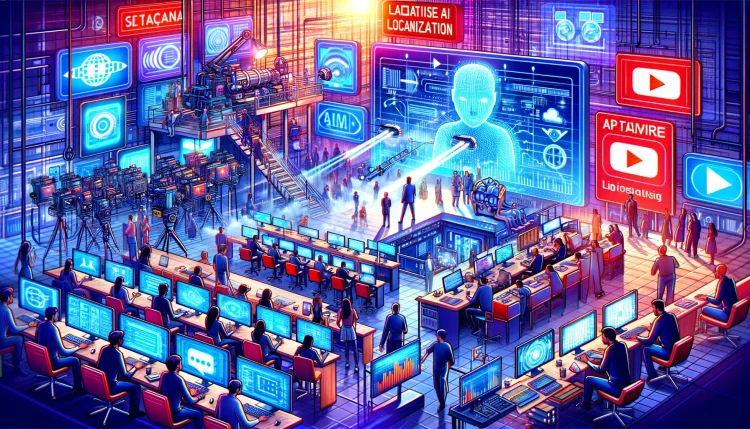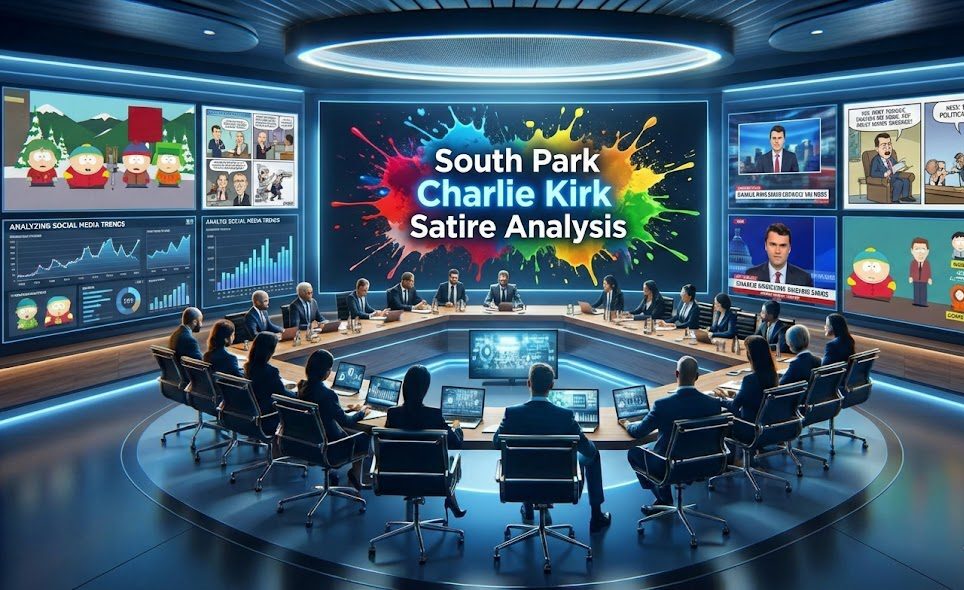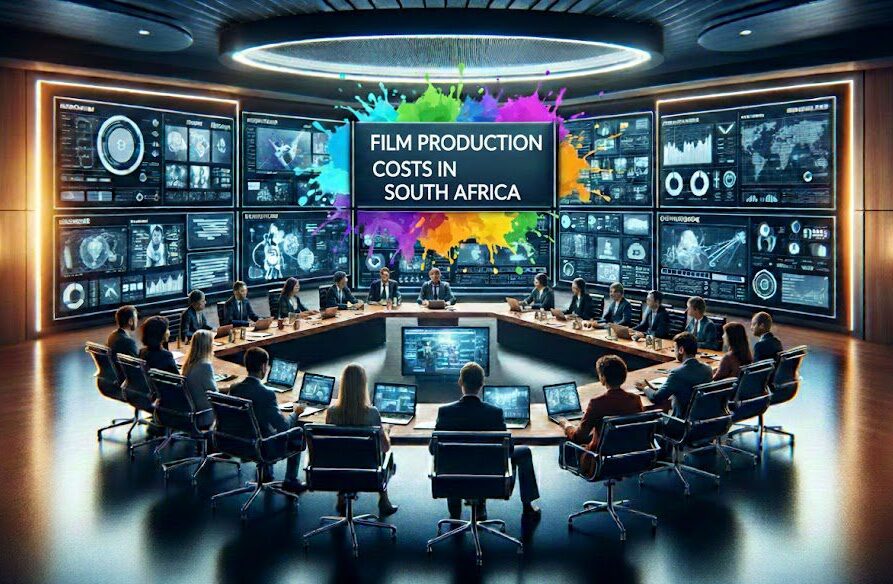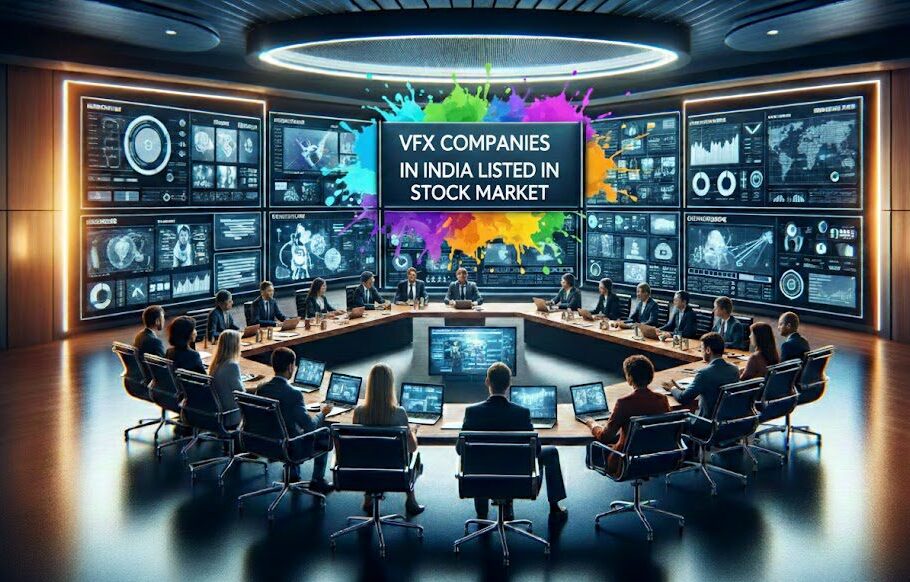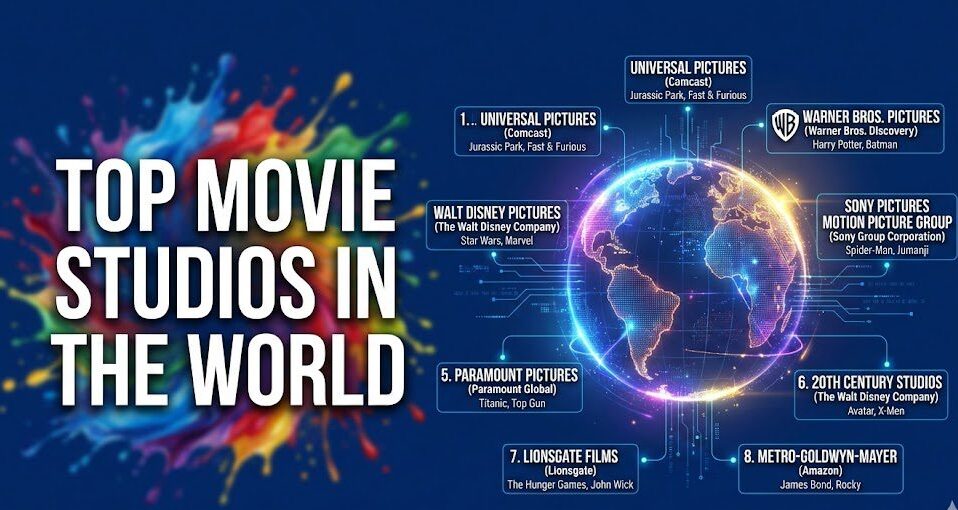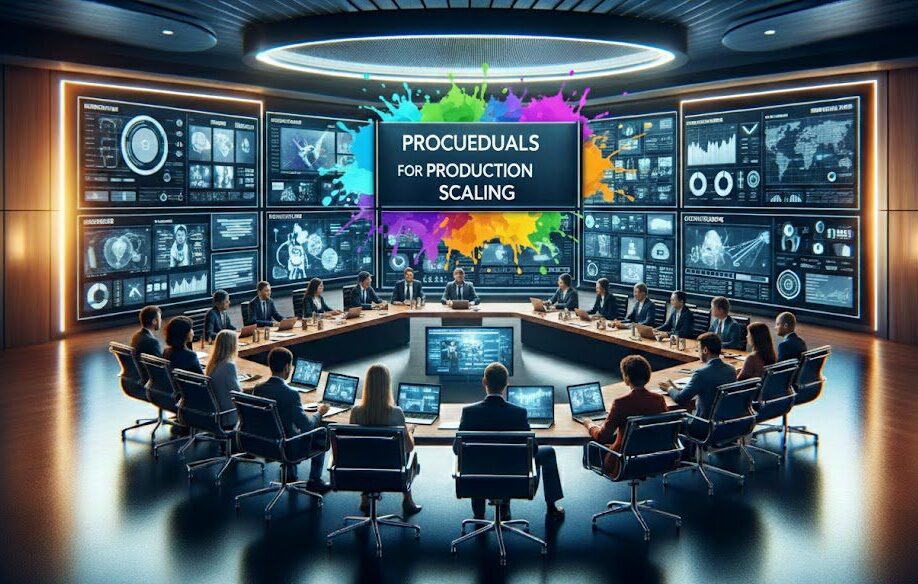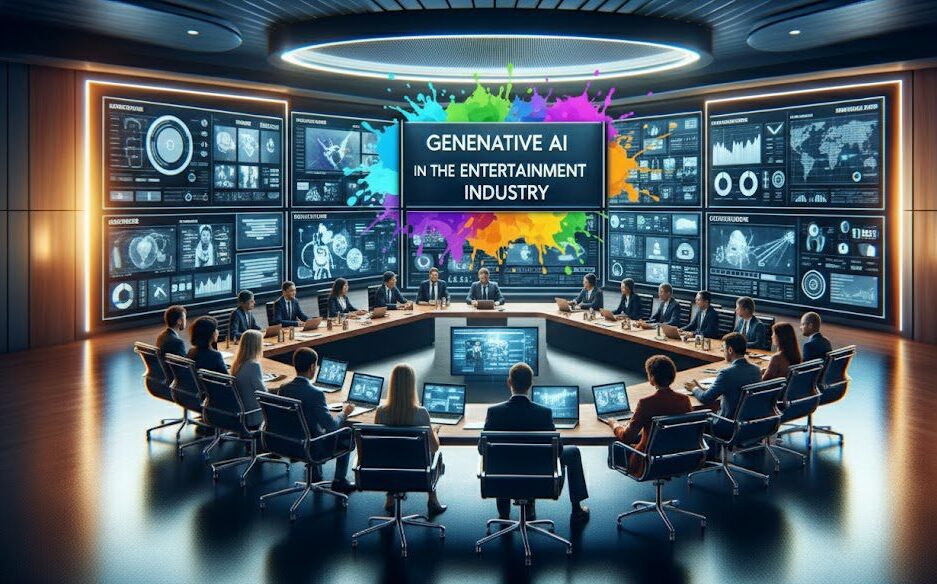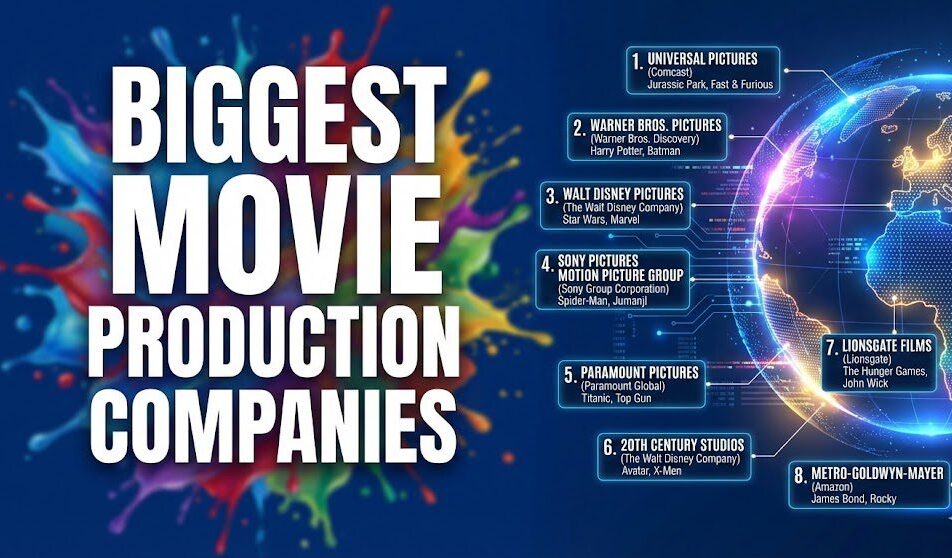Introduction
In today’s interconnected world, the film industry has embraced the power of artificial intelligence (AI) to expand its reach and tap into global markets. As filmmakers strive to break down language barriers and cater to diverse audiences worldwide, the localization of films has become a critical aspect of their success. Through the use of cutting-edge AI technology, filmmakers can now unlock the potential of global markets like never before. AI localization in the film industry involves using advanced algorithms to accurately translate and adapt movies into different languages and cultural contexts. This ensures that the film resonates with audiences in various regions, making it more relatable and engaging. Moreover, AI-powered localization allows filmmakers to identify the best distribution strategies for each market, optimizing their chances of success. By leveraging AI localization, film studios can now unlock a world of opportunities. From expanding their fan base to increasing international revenue, this innovative technology has the potential to revolutionize the way films are produced and distributed. So, as the film industry continues to evolve, AI localization will undoubtedly play a crucial role in unlocking the global potential of movies.
Top 10 AI Localization Companies
1. Zoo Digital
- ZOO Digital is a provider of cloud software-based subtitling, dubbing, and media localization services to the TV and movie industry. These globalization services are trusted by the biggest names in entertainment. Ready to deliver high-quality localization and media services at scale. ZOO Digital spans continents and cultures to do incredible things.
- Connect : Click here to connect with ZOO Digital.
2. Prime Focus Technologies
-
Prime Focus Technologies is based in the United States of America. PFT offers customers transformational solutions that help automate the content supply chain and digitally mediate enterprise workflows to manage the content and the business of content. It offers broadcasters, studios, brands, and service providers transformational solutions that help them lower their Total Cost of Operations (TCOP) by automating the supply chain and managing their content business better.
- Connect : Click here to connect with Prime Focus Technologies.
3. Iyuno
- Iyuno is a global entertainment technology and localization company serving the world’s leading entertainment studios in dubbing, subtitling, and media services with 67 offices across 35 countries. The company’s 75-year collective legacy is unmatched in operational expertise, scale, capacity, and breadth of services.
- Connect : Click here to connect with Iyuno.
4. Keywords Studios
- Keywords Studios is a world-leading provider of comprehensive services for the video game and entertainment industries. From expert localization and captivating audio services to rigorous testing and stunning art and animation, we enhance every aspect of gaming experiences.
- Connect : Click here to connect with Keywords Studios.
5. Hiventy
- Hiventy is a leading provider of technical audiovisual services in France and abroad. It participates in every stage in the life of audiovisual works and films, from post-production to final delivery, for all types of broadcasts. As a trusted partner, it strives to help everyone in the audiovisual and film industry expand its catalog distribution in order to maximize its income and success.
- Connect : Click here to connect with Hiventy.
Achieve Seamless Localization with AI Technology
Utilize advanced AI to deliver accurate and culturally relevant translations for your films.
6. RWS Moravia
- Moravia rebranded to RWS Moravia, is an RWS company, that delivers product localization, global digital marketing, and testing services to the world’s top brands. It has 9 offices in Europe, Asia, and the Americas, their talented teams design customized solutions to help its clients succeed in going global. When you need a globalization solution provider that creates high-quality localized products and content that meet the language and functionality needs of customers in any locale you can connect them.
- Connect : Click here to connect with RWS Moravia.
7. Ai-Media
- Ai-Media was founded in 2003 on the belief that everyone deserves access to information. Providing that access remains their mission to this day, and they have also evolved their business. It is one of the biggest captioning providers for the education, corporate, broadcast, and government sectors, with a growing footprint in global markets.
- Connect : Click here to connect with Ai-Media.
8. Acolad
-
Acolad is the global leader in professional language, content, and digital services. The group has a presence in 25 countries and on 3 continents and distinguishes itself by its multi-local market approach. Acolad offers a wide range of language services, for all industries and sectors, including translation, localization, and interpretation. US$101 million to US$500 million.
- Connect : Click here to connect with Acolad.
9. CBarrandov Studio
- Barrandov Studio is one of the largest and oldest film studios in Europe. Since its foundation in 1931, the studio has hosted productions of over 5,000 Czech and international films. Film is a complex activity, requiring cooperation of numerous branches, fields, and crafts. The key advantage of Barrandov Studio is that almost all these services are offered at a single location which is the famed hill above Prague where, in the beginning of the 1930s, its founding fathers, the Havel brothers, decided to build their dream-factory.
- Connect : Click here to connect with Barrandov.
10. Ti Comnet Japan
- TI ComNet is the only independent distributor of Japanese content in Japan. They offer a wide range of services, including content sales, acquisition, translation, localization, voice-over, narration as well as international co-production coordination. Headquartered in Sapporo, Japan with branch offices in Tokyo, Singapore, and New York, TI-ComNet Japan has built strong
relationships with a wide section of professionals from the broadcast and film industries in the US, Canada, Europe, and Asia. - Connect : Click here to connect with TI ComNet.
These companies are recognized for their contributions to understanding market trends, consumer behaviors, and media consumption, offering valuable insights that help shape strategies in the entertainment industry.
Unlocking Global Markets: The Power of AI Localization in the Film Industry
In today’s interconnected world, the film industry has embraced the power of artificial intelligence (AI) to expand its reach and tap into global markets. As filmmakers strive to break down language barriers and cater to diverse audiences worldwide, the localization of films has become a critical aspect of their success. Through the use of cutting-edge AI technology, filmmakers can now unlock the potential of global markets like never before.
AI localization in the film industry involves using advanced algorithms to accurately translate and adapt movies into different languages and cultural contexts. This ensures that the film resonates with audiences in various regions, making it more relatable and engaging. Moreover, AI-powered localization allows filmmakers to identify the best distribution strategies for each market, optimizing their chances of success.
By leveraging AI localization, film studios can now unlock a world of opportunities. From expanding their fan base to increasing international revenue, this innovative technology has the potential to revolutionize the way films are produced and distributed. So, as the film industry continues to evolve, AI localization will undoubtedly play a crucial role in unlocking the global potential of movies.
Elevate Your Global Reach with AI Localization
Expand your audience with precise and efficient AI-powered localization services.
The film industry has always been focused on reaching a wide audience and generating revenue. In recent years, the importance of global markets has become even more evident. With the rise of streaming platforms and the increasing accessibility of movies from around the world, filmmakers are now able to tap into a global audience like never before.
Expanding into global markets not only increases the potential revenue for film studios but also allows for greater exposure and recognition. By catering to different cultures and languages, filmmakers can create a more inclusive and diverse industry that resonates with audiences worldwide. This has led to a growing demand for localization services in the film industry.
AI localization in the film industry involves using advanced algorithms to accurately translate and adapt movies into different languages and cultural contexts. Traditional methods of localization often rely on human translators, which can be time-consuming and costly. AI localization, on the other hand, streamlines the process by automating the translation and adaptation tasks.
One of the key benefits of AI localization is its speed and efficiency. AI-powered algorithms are capable of processing vast amounts of data in a short amount of time, allowing films to be localized and released in multiple languages simultaneously. This not only reduces the time it takes to reach global audiences but also minimizes the costs associated with traditional localization methods.
Another advantage of AI localization is its accuracy. AI algorithms are constantly improving and learning, ensuring that translations are as precise as possible. This is particularly important when it comes to preserving the artistic integrity of a film. By accurately translating and adapting the dialogue, AI localization ensures that the original message and emotions of the film are not lost in translation.
To achieve effective AI localization in the film industry, various tools and technologies are utilized. These tools range from machine learning algorithms to natural language processing (NLP) systems. Machine learning algorithms analyze and understand the nuances of different languages, allowing for accurate translation and adaptation. NLP systems, on the other hand, help to identify cultural references and context-specific language that may require adaptation.
Companies specializing in AI localization have developed sophisticated platforms that combine these tools and technologies. These platforms enable filmmakers to upload their films and receive localized versions in multiple languages. The platforms also offer features such as quality assurance checks and customizable workflows, ensuring that the localization process is seamless and efficient.
Enhance Your Film’s Accessibility Worldwide
Leverage AI to provide high-quality subtitles and dubbing in multiple languages.
While AI localization offers numerous benefits, it is essential to follow best practices to ensure a successful outcome. One of the key considerations is the involvement of human linguists and cultural experts in the localization process. While AI algorithms can handle the bulk of the translation work, human input is crucial for ensuring cultural accuracy and adapting the film to specific regions.
Collaboration between filmmakers, AI localization experts, and linguists is also vital. Filmmakers should provide detailed guidelines and context for the translation and adaptation process, ensuring that the original vision of the film is maintained. Regular communication and feedback loops are necessary to address any concerns or issues that may arise during the localization process.
Additionally, it is essential to conduct thorough market research before embarking on AI localization. Understanding the cultural nuances and preferences of different regions can help inform the adaptation process. This includes considerations such as local customs, idioms, and references that may require modification to resonate with the target audience.
Several case studies highlight the success of AI localization in the film industry. One notable example is the Chinese film “Wolf Warrior 2,” which became a massive hit in China and surpassed the box office records of many Hollywood films. The film’s success was attributed in part to its effective localization, with dialogue and cultural references adapted to resonate with Chinese audiences.
Another example is the animated film “Coco,” which tells the story of a young boy’s journey through the Land of the Dead in Mexico. The film’s localization efforts ensured that the cultural aspects and significance of the Day of the Dead celebration were accurately portrayed. This attention to detail allowed the film to connect with audiences worldwide, generating both critical acclaim and commercial success.
While AI localization offers significant advantages, it is not without its challenges and limitations. One of the primary challenges is the complexity of language and cultural adaptation. AI algorithms may struggle with idiomatic expressions, wordplay, and cultural references that do not have direct equivalents in other languages. This requires a careful balance between automated translation and human intervention.
Another challenge is the potential loss of artistic control. Filmmakers may be concerned about how their films are adapted for different markets, fearing that the original message and intentions may be compromised. To address this, it is crucial for filmmakers to be actively involved in the localization process and maintain open lines of communication with the AI localization team.
Additionally, AI localization may face legal and regulatory challenges, particularly when it comes to copyright and intellectual property rights. Filmmakers must ensure that they have the necessary permissions and licenses to distribute their films in different languages and regions. This requires thorough legal research and compliance with local laws and regulations.
Unlock the Power of AI Localization
Ensure your film resonates with audiences across the globe using our AI-driven localization solutions.
As AI technology continues to advance, the future of AI localization in the film industry looks promising. Machine learning algorithms are becoming more sophisticated, allowing for better language processing and adaptation. This, coupled with advancements in voice and speech recognition, will further enhance the accuracy and quality of AI localization.
The rise of virtual reality (VR) and augmented reality (AR) technologies also presents new opportunities for AI localization. These immersive technologies can be used to create localized experiences for audiences, allowing them to engage with films in a more personalized and interactive way. This opens up possibilities for customized language options, subtitles, and cultural adaptations.
Furthermore, AI localization has the potential to revolutionize film distribution. By analyzing data and audience preferences, AI algorithms can identify target markets and develop tailored distribution strategies. This not only increases the chances of success but also allows for more efficient use of resources and marketing efforts.
In an increasingly globalized world, AI localization plays a crucial role in expanding the reach of films and connecting with diverse audiences. By breaking down language barriers and adapting films to different cultural contexts, filmmakers can create a more inclusive and accessible industry. This not only benefits the film industry but also fosters cultural exchange and understanding.
AI localization also has the potential to empower independent filmmakers and emerging markets. With the ability to reach global audiences, filmmakers from non-traditional film hubs can gain recognition and exposure. This promotes diversity in storytelling and allows for a wider range of voices to be heard.
As the film industry continues to evolve, AI localization will undoubtedly play a crucial role in unlocking the global potential of movies. By utilizing advanced algorithms and technologies, filmmakers can break down language barriers, adapt to cultural contexts, and expand their reach to diverse audiences worldwide. From increasing revenue to fostering cultural exchange, the power of AI localization in the film industry is transformative. As AI technology continues to advance, the future holds even greater possibilities for the industry, allowing for more personalized and immersive film experiences for audiences around the world.
AI localization involves using artificial intelligence to translate, dub, and subtitle films, making them accessible to global audiences efficiently and accurately.
AI improves localization by automating translation and dubbing, reducing time and costs while maintaining consistency and accuracy.
Challenges include quality control, cultural nuances, and ethical considerations such as job displacement and intellectual property rights.
While AI significantly enhances localization, human oversight remains essential to ensure quality and address cultural subtleties that AI might miss.
AI localization has democratized film distribution, allowing smaller studios to reach global audiences and enhancing the efficiency of post-production workflows.



